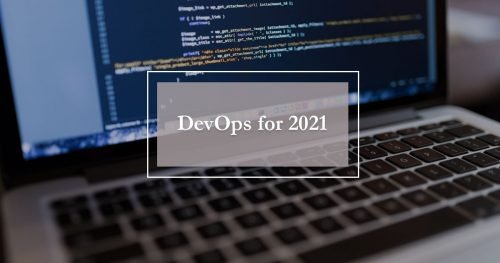DevOps Trends to Look Forward to in 2021

The IT industry will thrive in 2021, especially as the need for IT products and services increases to meet the challenges of the New Normal. To meet the quick pace of change, IT teams have begun leveraging DevOps trends more than ever.
But First, What is DevOps?
DevOps is an approach designed to integrate the process of IT operations and software development. In fact, DevOps is derived from two terminologies “development” and “operations”.
DevOps offers a combination of practices and tools which enable organizations to deliver IT-related products and services faster than traditional software development processes. As a result, IT teams can increase customer satisfaction and compete more effectively.
Further adding to the appeal of this practice are benefits including:
- Reliability – DevOps ensures the quality of deliverables through practices such as continuous integration and continuous delivery. Therefore, it helps maintain user experience for end-users despite quicker delivery.
- Improved Collaboration – DevOps eliminates inter-departmental silos between development teams and operations. That way, they can collaborate and communicate dynamically.
- Effective Defect Detection – As the practice fosters a culture of knowledge sharing, teams can effectively share their feedback to ensure higher quality. Moreover, the use of automated, continuous monitoring and continuous testing ensures the quality of the overall build.
- Continuous Release and Deployment – DevOps empowers IT to deliver high quality through shorter release cycles. As it promotes automation, DevOps teams can develop and integrate code simultaneously.
5 DevOps Trends to Look Out for in 2021
Whether you’re new to DevOps or have been relying on it for a while, you should be aware of what’s to come. That way, you can effectively incorporate new trends in your daily practices.
The Rise of Hybrid Product Teams
Hybrid product teams are becoming more mainstream. This is because product and engineering teams are constantly collaborating, especially as they need to sell products and services through eCommerce sites, apps, etc.
To best accommodate this trend, IT professionals need to grow their process skills, soft skills, automation skills, and knowledge. That way, their organizations can achieve cross-functional, multidisciplinary teams.
A Systematic Thinking Corporate Culture
While millions have been spent on digital transformation, enterprises haven’t been able to yield systematic business outcomes.
In 2021, experts predict a shift to systems thinking to fuel strategic investments. This will help identify where and what types of investments will provide the desired business outcomes. In turn, business leaders can scale these concepts across a company.
Artificial Intelligence and Machine Learning in the DevOps Framework
Artificial intelligence and machine learning are ‘in’. Fueling their popularity is AI’s ability to augment human-driven processes and skills, and machine learning’s ability to improve strategy and decision making.
By combining AI and machine learning with DevOps, professionals can resolve problems before the deployment. One aspect in particular which will benefit from this trend is building secure infrastructure.
DevOps and security teams are expected to use intelligence-based code solutions for this purpose. That way, they can move away from manually attempting to resolve vulnerabilities. As a result, limited financial and human resources can be utilized for other work.
Change in Software Security Landscape
With 2020 ending with accelerated cloud adoption, experts expect software security to undergo massive changes. Especially with the pressure of delivery velocity increasing during the last two quarters of 2020.
DevOps experts predict that software security will transform into a risk-based vulnerability management service. In the process of building and delivering software, security services will be automated and orchestrated as well. This is good news for under-resourced security teams as it reduces the pressures of vulnerability management and policy reinforcement.
Use of Predictive DevOps
AIOps techniques will enable the delivery of continuous value improvements for the business. As a result, DevOps teams will focus more on monitoring the business instead of monitoring their applications or infrastructure.
This may require organizations to cultivate a culture of BizDevOps, which is where business becomes part of the team rather than just a consumer.
Still Not DevOps Certified?
Just knowing about DevOps trends isn’t enough. A DevOps certificate can catalyze a new career and ensure higher pay and recognition.
You also get to specialize in a specific aspect of DevOps based on the certification you choose. For instance, the DevOps Fundamental course is designed to prepare you to best meet market demands.
On the other hand, DevOps Leadership equips practitioners with knowledge of DevOps processes, tools, and culture implementation. That way, they can lead a cultural shift towards the practice and ensure their efforts align with business value delivery.
Whatever you choose, just make sure you have this credential to testify to your knowledge and skill on what’s soon to become THE biggest need for IT teams in 2021.




